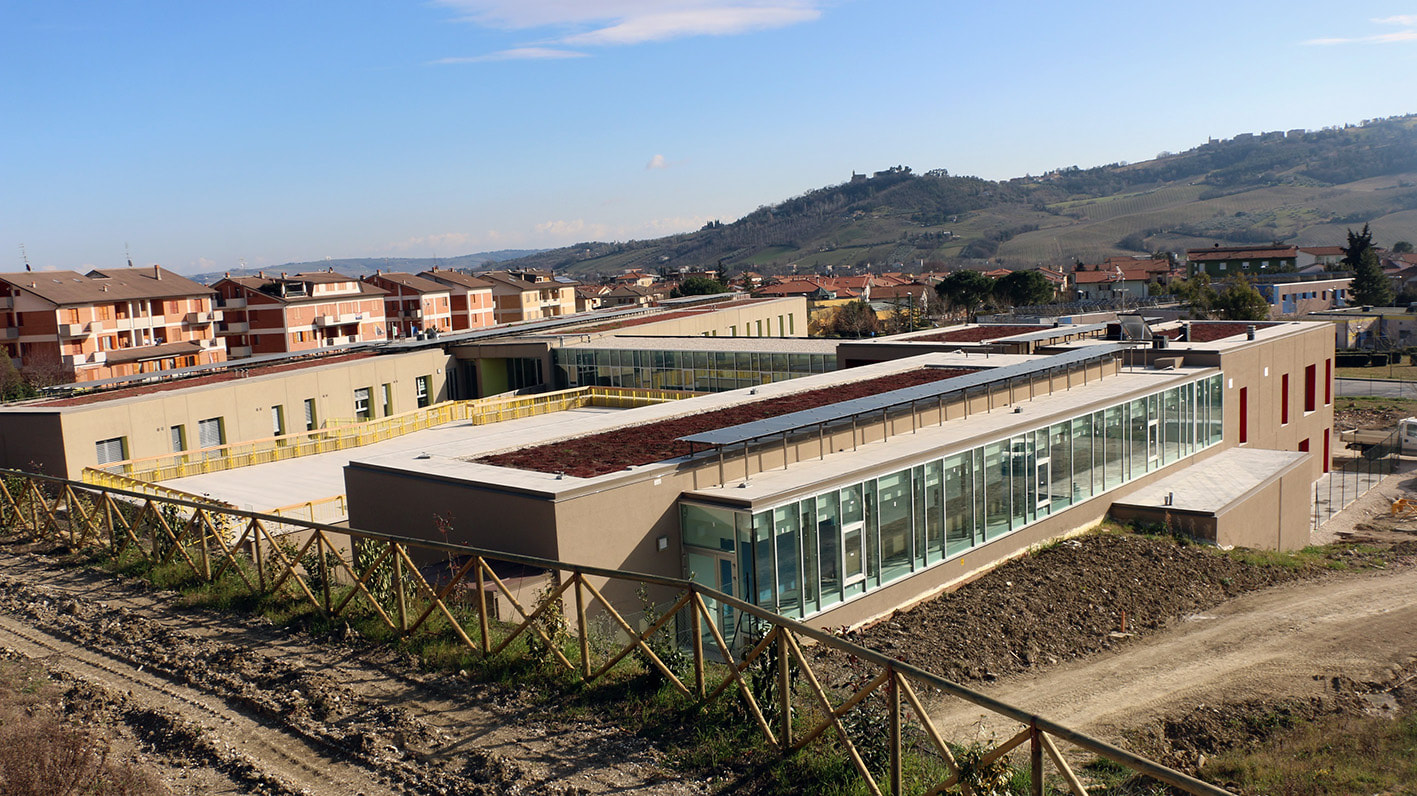We have 1139 students from 3 to 14 years old; 8 classes of kindergarden, 26 classes of primary
school and 14 classes of secondary school. There are 30 students with special needs and 170
migrants. The staff includes 104 teachers: 24 kindergarten, 45 primary school and 35 secondary
school. Our institute is deeply involved in environmental education. We’re looking for new ideas and
ways of teaching, linked to experimenting new types of practice and different system of school
activities organization.We’re looking for new connections for global education, therefore we’d like to
share and discuss our own school practices, to explore local culture and speak foreign language. We
want also strengthen innovation in the curriculum, and promote a trasversal didactic, which uses
nature as a stimulus for curiosity and hence for learning; promote active citizenship and a sense of
belonging to the European community. Our school intends to integrate outdoor learning
recommendations into the long-term school policy plan. Our institute has always been a
heterogeneous and intercultural educational reality: many interventions have been carried out to
reduce the gap between students, to support the overcoming of differences; we are engaged in
projects in the area of intercultural, environmental education and citizenship education what is still
missing is a serious and constructive comparison with the European context. We hope to do a
comparative analysis of the school curricula, and the revision of the school curriculum in an
innovative light, to guarantee continuity over time to the actions undertaken during the project. The
experimentation of a new methodology according to the positive pedagogy model, based on learning
by doing, on discovery, on curiosity, is going to allow students to experience meaningful learning and
is going to foster cultural openness to a sense of active citizenship. The teachers will learn how to
develop personal and social skills through outdoor activities and lessons. After the conclusion of the
project we expect the consolidation of the good practices acquired, guaranteed by the introduction in
the PTOF of the new methodologies learned and the sharing of the project activities of the institute
with the partner schools. We wish a professional growth for the team involved, positively affecting the
work status and the motivation to pursue the path of lifelong learning. We have no experience in
strategic partnership, but because of that we might bring new point of view to the subject matter. In
addition our students are building educational garden where they can compare what type of plants
can grow in different environments and climate conditions. We have used the eTwinning platform for
partner school research, we plan to use it for sharing and spreading activities and results. Because of
our previous experience eTwinning Project "Finland meets Italy" we think that we can use that
experience and knowledge for this project as well.
school and 14 classes of secondary school. There are 30 students with special needs and 170
migrants. The staff includes 104 teachers: 24 kindergarten, 45 primary school and 35 secondary
school. Our institute is deeply involved in environmental education. We’re looking for new ideas and
ways of teaching, linked to experimenting new types of practice and different system of school
activities organization.We’re looking for new connections for global education, therefore we’d like to
share and discuss our own school practices, to explore local culture and speak foreign language. We
want also strengthen innovation in the curriculum, and promote a trasversal didactic, which uses
nature as a stimulus for curiosity and hence for learning; promote active citizenship and a sense of
belonging to the European community. Our school intends to integrate outdoor learning
recommendations into the long-term school policy plan. Our institute has always been a
heterogeneous and intercultural educational reality: many interventions have been carried out to
reduce the gap between students, to support the overcoming of differences; we are engaged in
projects in the area of intercultural, environmental education and citizenship education what is still
missing is a serious and constructive comparison with the European context. We hope to do a
comparative analysis of the school curricula, and the revision of the school curriculum in an
innovative light, to guarantee continuity over time to the actions undertaken during the project. The
experimentation of a new methodology according to the positive pedagogy model, based on learning
by doing, on discovery, on curiosity, is going to allow students to experience meaningful learning and
is going to foster cultural openness to a sense of active citizenship. The teachers will learn how to
develop personal and social skills through outdoor activities and lessons. After the conclusion of the
project we expect the consolidation of the good practices acquired, guaranteed by the introduction in
the PTOF of the new methodologies learned and the sharing of the project activities of the institute
with the partner schools. We wish a professional growth for the team involved, positively affecting the
work status and the motivation to pursue the path of lifelong learning. We have no experience in
strategic partnership, but because of that we might bring new point of view to the subject matter. In
addition our students are building educational garden where they can compare what type of plants
can grow in different environments and climate conditions. We have used the eTwinning platform for
partner school research, we plan to use it for sharing and spreading activities and results. Because of
our previous experience eTwinning Project "Finland meets Italy" we think that we can use that
experience and knowledge for this project as well.

